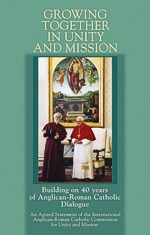- Français
- |
- Booklist
- |
- Week of Prayer
- |
- Links
- Areopagus - a forum for dialogue
- Academic journals
- Acronyms
- Bible tools
- Bibliographies
- Booksellers and publishers
- Churches
- Canadian church headquarters
- Directory of Saskatchewan churches
- Retreat centres
- Saskatchewan church and non-profit agencies
- Ecumenism.net Denominational links
- Anabaptist & Mennonite
- Anglican
- Baptist
- Evangelical
- Independent episcopal
- Lutheran
- Methodist, Wesleyan, and Holiness
- Miscellaneous
- Mormon
- Orthodox (Eastern & Oriental)
- Para-church ministries
- Pentecostal / charismatic
- Presbyterian & Reformed
- Quaker (Society of Friends)
- Roman & Eastern Catholic
- United and uniting
- Documents of Ecumenical Interest
- Ecumenical agencies
- Ecumenical Booklist
- Ecumenical Dialogues
- Glossary
- Human rights
- Inter-religious links
- Justice & peace
- Lectionaries
- Religious news services
- Resource pages
- Search Ecumenism.Net
- |
- Documents
- Ancient & Medieval texts
- Ecumenical Dialogues
- Interreligious
- Anabaptist & Mennonite
- Anglican
- Evangelical
- Lutheran
- Orthodox
- Reformed & Presbyterian
- Roman & Eastern Catholic
- United & Uniting
- Miscellaneous churches
- Canadian Council of Churches (CCC)
- Conference of European Churches (CEC)
- Interchurch Families International Network (IFIN)
- National Council of Churches in Australia (NCCA)
- Lausanne Committee for World Evangelism (LCWE)
- World Council of Churches (WCC)
- Other ecumenical documents
Church traditions
Documents from ecumenical agencies
- |
- Dialogues
- Adventist-Reformed
- African Instituted Churches-Reformed
- Anglican-Lutheran
- Anglican-Orthodox
- Anglican-Reformed
- Anglican-Roman Catholic
- Anglican-United/Uniting
- Baptist-Reformed
- Disciples of Christ-Reformed
- Disciples of Christ-Roman Catholic
- Evangelical-Roman Catholic
- Lutheran-Mennonite
- Lutheran-Mennonite-Roman Catholic
- Lutheran-Reformed
- Lutheran-Roman Catholic
- Mennonite-Reformed
- Mennonite-Roman Catholic
- Methodist-Reformed
- Methodist-Roman Catholic
- Oriental Orthodox-Reformed
- Orthodox-Reformed
- Orthodox-Roman Catholic
- Pentecostal-Reformed
- Prague Consultations
- REC-WARC Consultations
- Roman Catholic-Lutheran-Reformed
- Roman Catholic-Reformed
- Roman Catholic-United Church of Canada
- |
- Quick links
- Canadian Centre for Ecumenism
- Canadian Council of Churches
- Ecumenical Shared Ministries
- Ecumenism in Canada
- Interchurch Families International Network
- International Anglican-Roman Catholic Commission for Unity and Mission
- Kairos: Canadian Ecumenical Justice Initiatives
- North American Academy of Ecumenists
- Prairie Centre for Ecumenism
- Réseau œcuménique justice et paix
- Week of Prayer for Christian Unity
- Women's Interchurch Council of Canada
- World Council of Churches
- |
- Archives
- |
- About us

Growing Together in Unity and Mission: Building on 40 years of Anglican-Roman Catholic Dialogue
International Anglican-Roman Catholic Commission on Unity and Mission (IARCCUM)
SPCK, 2007
ISBN: 978-0-2810-5939-3
• The full text of this document is also available online.
• Nicholas Jesson's blog entry entitled Anglicans & Catholics growing together in unity & mission is also available.
An Agreed Statement by the International Anglican-Roman Catholic Commission for Unity and Mission (IARCCUM).
The preface to the document:
In May 2000 the Archbishop of Canterbury, Dr. George Carey, and the President of the Pontifical Council for Promoting Christian Unity, Cardinal Edward Cassidy, called a meeting of bishops from our two Communions at Mississauga in Canada to seek a way forward in the continuing relationship between the Anglican Communion and the Catholic Church.
It was a meeting filled with hope for the future relationship between the two Communions, marked by a recognition of how much we shared in common in our Christian belief and ecclesial life.
At the end of our meeting, the bishops accepted that a new body should be established to promote our relationship by seeking to translate our manifest agreement in faith into common life and mission. This commission would be quite different from the existing theological dialogue of the Anglican-Roman Catholic International Commission (ARCIC). It was envisaged as a commission of bishops which would focus on the agreements discerned by ARCIC, precisely to draw out how they compel us towards joint witness and mission in the world.
The International Anglican-Roman Catholic Commission for Unity and Mission (IARCCUM) was established in 2001 and its work since then has been to implement the mission plan agreed in Mississauga. The force of events, particularly difficulties in the life of the Anglican Communion, had its impact on the work of the Commission: some of these are detailed in paragraph 6.
This is not an authoritative declaration by the Roman Catholic Church or by the Anglican Communion. What is offered by IARCCUM here is a statement which is intended to foster discussion and reflection. However, it is more than this: it is a call for action, based upon an honest appraisal of what has been achieved in our dialogue. Despite our present 'imperfect communion', there is, we feel, enough common ground to take seriously how we work together. IARCCUM, as an episcopal commission, is offering practical suggestions on the way in which Anglican and Roman Catholic ecumenical participation can be appropriately fostered and carried forward. Although this text has been prepared by bishops and is addressed primarily to bishops, it is to be hoped that bishops will in turn engage clergy and laity in responding to the challenges set out in the text, in ways appropriate to their local circumstances.
It is forty years since Archbishop Michael Ramsey paid the first formal visit of an Archbishop of Canterbury to the Pope, in this case Pope Paul VI, since the Reformation. Behind the divisions of the Reformation lay fifteen hundred years of communion in faith and witness. The time is ripe for reflection, which leads to intensified action. As co-chairs of IARCCUM we commend this document for joint study and action, and ask that God's Holy Spirit may continue to move us ever closer to that unity for which Christ prayed and for which Anglicans and Catholics yearn.


